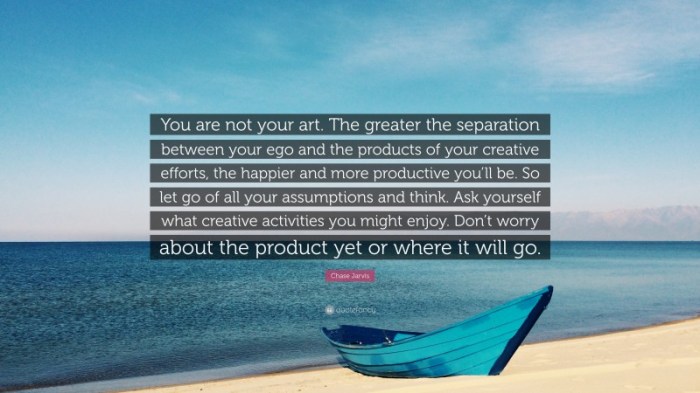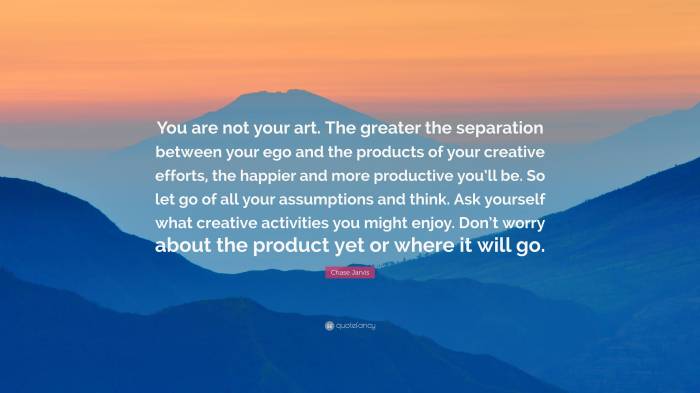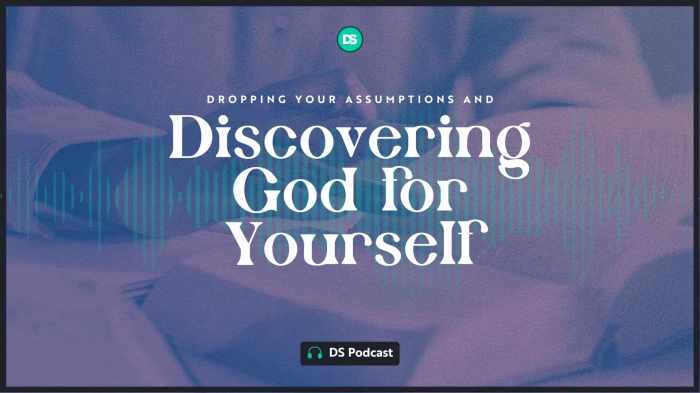Ever felt like your understanding of God is stuck in a rut? Maybe you’ve inherited beliefs from your family or culture, or maybe you’ve been turned off by the rigid dogma of organized religion. Whatever your experience, the truth is, God might not be who you think he is.
This journey of self-discovery invites you to shed your preconceived notions and embark on a personal quest for a deeper understanding of the Divine.
We’ll explore the ways societal and cultural influences shape our perceptions of God, and how challenging those assumptions can lead to a more authentic and fulfilling spiritual life. We’ll delve into the power of personal experience and direct revelation, and discover how these tools can help you connect with God on a deeper level.
Get ready to break free from the limitations of traditional beliefs and embrace a new understanding of the Divine.
Challenging Preconceived Notions

Imagine walking into a party and everyone’s talking about this amazing band, but you’ve never heard of them. You’re hesitant to join in, thinking, “What if I don’t like them?” That’s kind of how it can be with God.
We often have these preconceived notions about who God is, based on what we’ve heard or been told, and it can make it hard to truly connect with Him.
Societal and Cultural Influences on Perceptions of God
We’re constantly bombarded with images and ideas about God, whether it’s from religious institutions, media, or even our own families. These influences shape our understanding, sometimes leading us to believe things that aren’t necessarily true. Think about the “angry God” stereotype.
It’s a common misconception that’s often portrayed in movies and TV shows, but it’s not the whole picture. The Bible actually presents God as loving, compassionate, and merciful. Our cultural biases can color our perceptions, and it’s important to be aware of those biases so we can approach God with an open mind.
Examples of Historical Figures and Religious Leaders Challenging Conventional Interpretations of God
Throughout history, many individuals have challenged conventional interpretations of God. For example, the 13th-century mystic Meister Eckhart, a German theologian, emphasized God’s absolute unity and the divine spark within each person. He rejected traditional interpretations of God as separate from humanity, emphasizing the inherent divinity within every individual.
His teachings, though controversial at the time, have inspired many people to see God in a new light. Similarly, the 19th-century theologian and philosopher, Friedrich Schleiermacher, emphasized the importance of personal experience in understanding God. He argued that religion was ultimately about the feeling of absolute dependence on a higher power, rather than a set of doctrines or beliefs.
Think you’ve got God all figured out? Maybe you’ve been hanging with the wrong crowd, man! It’s time to ditch the assumptions and discover your own connection. You know, sometimes, the best way to get in touch with the divine is to get in touch with yourself.
And guess what? That’s exactly what Scale Up Happiness 7 Proven Steps to Measurably Increase Your Passion Performance Joy and Success is all about. Finding your inner passion, boosting your performance, and amping up your joy can be a real spiritual journey.
So, ditch the dogma and get ready to meet the real God, the one you find within.
These individuals, along with many others, have shown us that there are different ways to understand God, and that our understanding can evolve and change over time.
Discovering God Through Personal Experience

The journey to understanding God is deeply personal and requires a willingness to look within. It’s not about blindly following dogma or relying solely on external sources; it’s about cultivating a relationship with the Divine through introspection and self-discovery.
The Importance of Personal Reflection and Introspection
Personal reflection and introspection are crucial for developing a genuine understanding of God. It’s about taking time to examine your thoughts, feelings, and experiences, seeking to identify the divine presence within and around you. This inward journey allows you to connect with your deepest self, unraveling the layers of conditioning and assumptions that might hinder your perception of God.
The Role of Spiritual Practices in Deepening Connection
Spiritual practices, such as prayer, meditation, or contemplative walks in nature, provide pathways to connect with the Divine. These practices cultivate a sense of stillness and mindfulness, allowing you to quiet the mind and open your heart to a deeper awareness of God’s presence.
“Prayer is not asking. It is listening.”
Mother Teresa
So, you’re on a spiritual journey, looking for answers, right? Maybe you’re trying to ditch the preconceived notions and see God for yourself. But hey, sometimes the journey to understanding takes a little creativity, right? Check out this article about how Doodles Help Handwriting Line Work , and you’ll see that getting your mind working on something new can open up new ways of thinking, maybe even about the divine.
Think of it as a little brain-boosting exercise for your spiritual journey. You never know what kind of epiphanies might pop up when you’re letting your inner artist run wild.
Prayer, in its essence, is a conversation with God. It can involve expressing gratitude, seeking guidance, or simply acknowledging God’s presence in your life. Meditation, on the other hand, involves focusing your attention on a single point, such as your breath or a mantra, quieting the mind and fostering a sense of peace.
Transformative Experiences and Deeper Understanding of God
Many individuals have experienced profound shifts in their understanding of God through personal encounters and transformative events. These experiences, whether a sudden revelation, a moment of grace, or a gradual unfolding of spiritual awareness, often leave an indelible mark on their lives.
So, you think you know the Big Guy Upstairs? Think again! It’s all about ditching the dogma and letting God’s message mingle with your own thoughts. You know, like those words that mingle and create something new, something totally rad?
Check out Words That Mingle for a taste of that. The point is, you’ve gotta find your own groove with God, not just follow the crowd. It’s your own journey, man!
“The greatest miracle is not to walk on water, but to walk on earth.”
Mother Teresa
For instance, someone might experience a profound sense of peace and love amidst a difficult situation, leading them to recognize God’s presence in the midst of adversity. Or, a person might have a dream or vision that provides them with insights and guidance, deepening their understanding of God’s plan.
Guided Meditation for Personal Exploration
Find a quiet space where you can sit comfortably. Close your eyes and take a few deep breaths, focusing on the rise and fall of your chest. As you breathe, notice the sensations in your body and let go of any tension you may be holding.
Now, imagine a warm, loving light surrounding you. This light represents God’s presence, enveloping you in peace and unconditional love. Allow yourself to feel the warmth and comfort of this light, letting it wash over you. As you continue to breathe, consider the aspects of your life where you feel a connection to the Divine.
Perhaps it’s through nature, music, art, or relationships. Notice the emotions that arise as you reflect on these connections.Finally, open your eyes and take a moment to reflect on your experience. Trust your intuition and allow yourself to be guided by the insights that arise from within.
The Power of Direct Revelation

Have you ever felt a deep sense of knowing, a conviction that went beyond logic or reason? This could be a glimpse of divine revelation, a direct communication from a higher power. While many rely on external sources like scriptures or religious leaders for spiritual guidance, the experience of personal revelation can be profoundly transformative.
Exploring Divine Revelation
Divine revelation is the idea that God communicates directly with individuals, offering insights, guidance, and a deeper understanding of His nature and will. This communication can take various forms, including visions, dreams, intuitive feelings, or a sudden sense of clarity.
Forget everything you think you know about God. This ain’t your grandma’s church sermon. This is about dropping those assumptions and finding your own truth. Ready to dive in? Download And Listen Here and get ready to discover God for yourself.
You might be surprised at what you find.
It’s not about hearing an audible voice, but rather a profound inner experience that resonates with the soul.
Examples of Divine Revelation in Scripture
Throughout history, many individuals have claimed to experience divine revelation. The Bible is filled with accounts of people receiving messages from God. For instance, Moses received the Ten Commandments on Mount Sinai, and the prophets like Isaiah and Jeremiah were inspired by God to deliver His message to the people.
These accounts highlight the power of divine revelation in shaping religious beliefs and guiding individuals.
“Then the Lord spoke to Moses face to face, as a man speaks to his friend. When Moses turned back to the camp, his assistant Joshua son of Nun did not leave the tent. But Moses stayed in the tent. The Lord said to Moses, “Go up to this mountain of Abarim and see the land I have given to the Israelites. After you have seen it, you too will be gathered to your people, as Aaron your brother was.”
This passage from Deuteronomy 34:5-6 illustrates how God communicated directly with Moses, offering him a glimpse of the Promised Land before his death. This intimate connection highlights the potential for direct revelation in shaping religious beliefs and guiding individuals.
The Limitations of External Sources
While scriptures and religious leaders provide valuable guidance, relying solely on them can limit our spiritual growth. These sources offer interpretations and perspectives that may not resonate with our unique experiences. Direct revelation allows us to connect with God on a personal level, developing a deeper understanding of His nature and will through our own lived experiences.
Approaches to Seeking Divine Revelation
| Approach | Description | Advantages | Disadvantages |
|---|---|---|---|
| Prayer and Meditation | Engaging in quiet reflection and seeking communion with God through prayer and meditation can create a space for divine revelation. | Cultivates a deeper connection with God, allows for personal reflection and introspection. | Requires consistent effort and discipline, may not yield immediate results. |
| Spiritual Practices | Engaging in practices like journaling, nature walks, or creative expression can help us connect with our intuition and be more receptive to divine guidance. | Provides a structured framework for spiritual exploration and self-discovery. | May require guidance from a spiritual mentor or teacher. |
| Service to Others | Serving others with love and compassion can open us up to divine revelation, as we experience God’s presence in the lives of others. | Promotes empathy and understanding, fosters a sense of purpose and meaning. | May be challenging to find the right opportunities or balance service with personal needs. |
Book Review: “He’s Not Who You Think He Is”

“He’s Not Who You Think He Is” by is a thought-provoking exploration of God that challenges conventional religious beliefs and encourages readers to discover their own personal relationship with the divine. The book’s central thesis argues that God is not a distant, authoritarian figure, but rather a loving and accessible presence that can be experienced through personal revelation and direct encounters.
The Book’s Central Thesis and Its Challenge to Conventional Views of God
The book’s main argument is that our preconceived notions about God, often shaped by religious dogma and cultural influences, can hinder our ability to truly connect with the divine. The author contends that God is not confined to any particular religion, denomination, or theological framework.
Instead, God is a universal force that can be experienced through personal encounters, inner intuition, and direct revelation. This challenges traditional views of God as a being who is only accessible through organized religion or specific religious practices.
Key Insights from the Book
One of the most compelling insights from the book is the emphasis on the importance of personal experience in discovering God. The author argues that our relationship with God should not be based on blind faith or intellectual acceptance of theological doctrines.
Instead, it should be rooted in personal encounters and direct experiences of the divine. This resonates with me because it aligns with my own belief that faith should be a journey of discovery and personal connection rather than a rigid set of beliefs imposed from outside.
Strengths and Weaknesses of the Book’s Argumentation and Presentation
The book’s strengths lie in its accessible language, engaging storytelling, and insightful reflections on personal experiences. The author effectively uses anecdotes and personal narratives to illustrate his points, making the concepts relatable and thought-provoking. However, the book’s weakness lies in its lack of rigorous theological analysis and its reliance on anecdotal evidence.
The author’s claims about the nature of God and the possibility of direct revelation could benefit from a more robust engagement with theological scholarship and a more balanced consideration of different perspectives.
Recommended Resources for Further Exploration of the Book’s Themes
For those interested in further exploring the themes discussed in “He’s Not Who You Think He Is,” here are some recommended resources:
- “The Mystical Theology of St. John of the Cross” by St. John of the Cross: This classic work of Christian mysticism explores the nature of divine union and the path to spiritual enlightenment.
- “The Varieties of Religious Experience” by William James: This influential book examines the nature of religious experience across different cultures and traditions, highlighting the diversity and universality of spiritual encounters.
- “The Power of Myth” by Joseph Campbell: This engaging exploration of mythology and symbolism delves into the archetypal themes and universal narratives that underlie religious traditions.
End of Discussion

So, are you ready to ditch the dogma and discover God for yourself? This journey isn’t about finding the “right” answer, but about exploring your own unique relationship with the Divine. By challenging your assumptions, embracing personal experience, and seeking direct revelation, you can unlock a deeper understanding of God that transcends the limitations of traditional beliefs.
Get ready to be surprised, challenged, and ultimately, transformed.
Key Questions Answered
Is this about a specific religion?
This exploration is about finding your own personal connection with the Divine, regardless of your religious background or beliefs. It’s about opening your mind to new possibilities and discovering what resonates with you.
How do I know if I’m actually connecting with God?
There’s no one right answer. Listen to your intuition, pay attention to your feelings and experiences, and trust your own inner guidance. It’s a journey of self-discovery, so be patient and allow yourself to grow.
What if I don’t believe in God?
That’s okay! This exploration is about challenging assumptions and opening your mind to new possibilities. Even if you don’t believe in a traditional God, you might find that there’s something more to life than what meets the eye.

